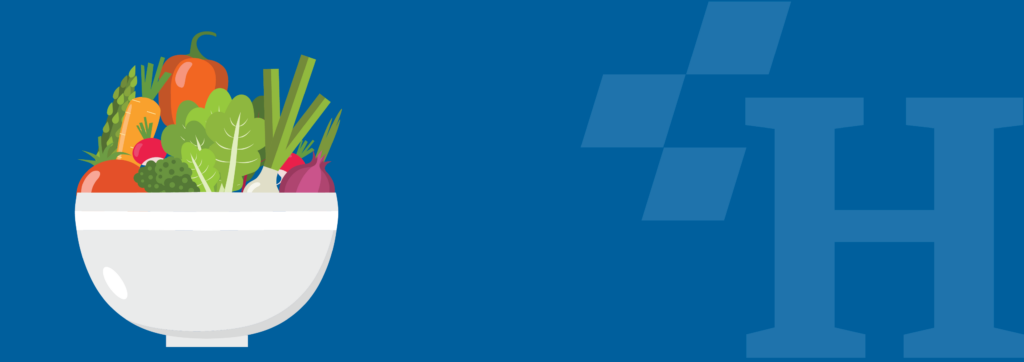Nutrition in a Nutshell
How Your Diet Should Change as You Age

When it comes to maintaining a healthy body, proper nutrition choices are essential. Good nutrition can lead to improvements in your overall health and reduce the risks of developing chronic diseases. March is also National Nutrition Month!
Eating healthy and keeping nutrition as a top priority in your life is always important but becomes increasingly crucial as you get older. As you age, your body and life change, and so do your health needs. As a result, certain nutrients become especially important for good health.

“Healthy eating and mindful nutritional choices not only make a difference in our health but have an impact on how we feel and our sense of well-being,” says Dr. Anandita Arora, Internal Medicine physician at Harbin Clinic Family Medicine Rome who completed her fellowship in Geriatrics. “While this is great advice for all ages, aging is commonly associated with nutrient deficiencies and muscle loss, so being more mindful of those nutritional needs as you get older and accommodating them into your diet can be crucial for your health.”
Calcium & Vitamin D
Individuals over 70 years old need more calcium and vitamin D to maintain bone health. Calcium-rich foods like fruit juices and dark leafy vegetables and foods substantial with vitamin D like fish and eggs can help support strong and healthy bones. If incorporating these foods into your diet isn’t an option, consider taking a supplement that has both calcium and vitamin D.
B12
Over the age of 50, it becomes more difficult for the body to absorb B12, resulting in B12 deficiencies. These deficiencies can result in anemia, muscle weakness and fatigue. Include lean meats, fish, fortified cereals and seafood into your diet to help prevent this.
Fiber
Dietary fiber can help lower your risk for heart disease, reduce your risk for Type 2 diabetes and encourage healthy digestion, which is why including it in your diet is essential. Whole-grain bread, cereals, beans, peas and lentils are all great sources of dietary fiber.
Potassium
Paired with lowering your salt intake, increasing the amount of potassium you consume can help reduce your risk of high blood pressure. Fruits, vegetables, beans and fat-free dairy products can help improve your potassium levels. Also, a helpful way to reduce your salt intake is to switch your usual salt additives for meals with other herbs and spices.
Protein
As you age, loss of muscle mass and strength is quite common. Eating an adequate amount of protein can help your body maintain muscle and prevent or minimize future loss. Fish, lean meats, lentils, nuts and eggs are excellent protein sources.

Omega-3 Fatty Acids
These fatty acids lower higher blood pressure, triglycerides and other heart risk factors. Salmon, chia seeds, walnuts and soybeans are all high in omega-3 and are easy to add to meals and snacks.
Magnesium
Medications and age-related changes can lead to a magnesium deficiency in elderly populations. This deficiency can harm your heart health, so filling your diet with magnesium-rich foods like almonds, spinach, peanuts, bananas and avocados can help keep your heart healthy as you age.
Drinking Water
Staying hydrated is not only essential for the general functioning of the body, but also prevents constipation, which is very prevalent in the elderly population. Dehydration can lead to fatigue, loss of strength and even decreased cognitive function. Drinking at least 8 glasses of water a day can prevent those outcomes.
Good nutrition is essential, especially as you age. Incorporating these small dietary changes is a great first step to taking charge of your health and making conscious decisions about your well-being. “It’s never too late to start making your health a top priority,” says Dr. Arora.
To learn more about how nutrition impacts your overall health, scheduling an appointment with your primary care physician is a great first step. Dr. Anandita Arora focuses on all aspects of a patient’s health, especially the older population. Click here to learn more about Dr. Arora. Find a Harbin Clinic provider near you to discuss your wellness and nutrition!


